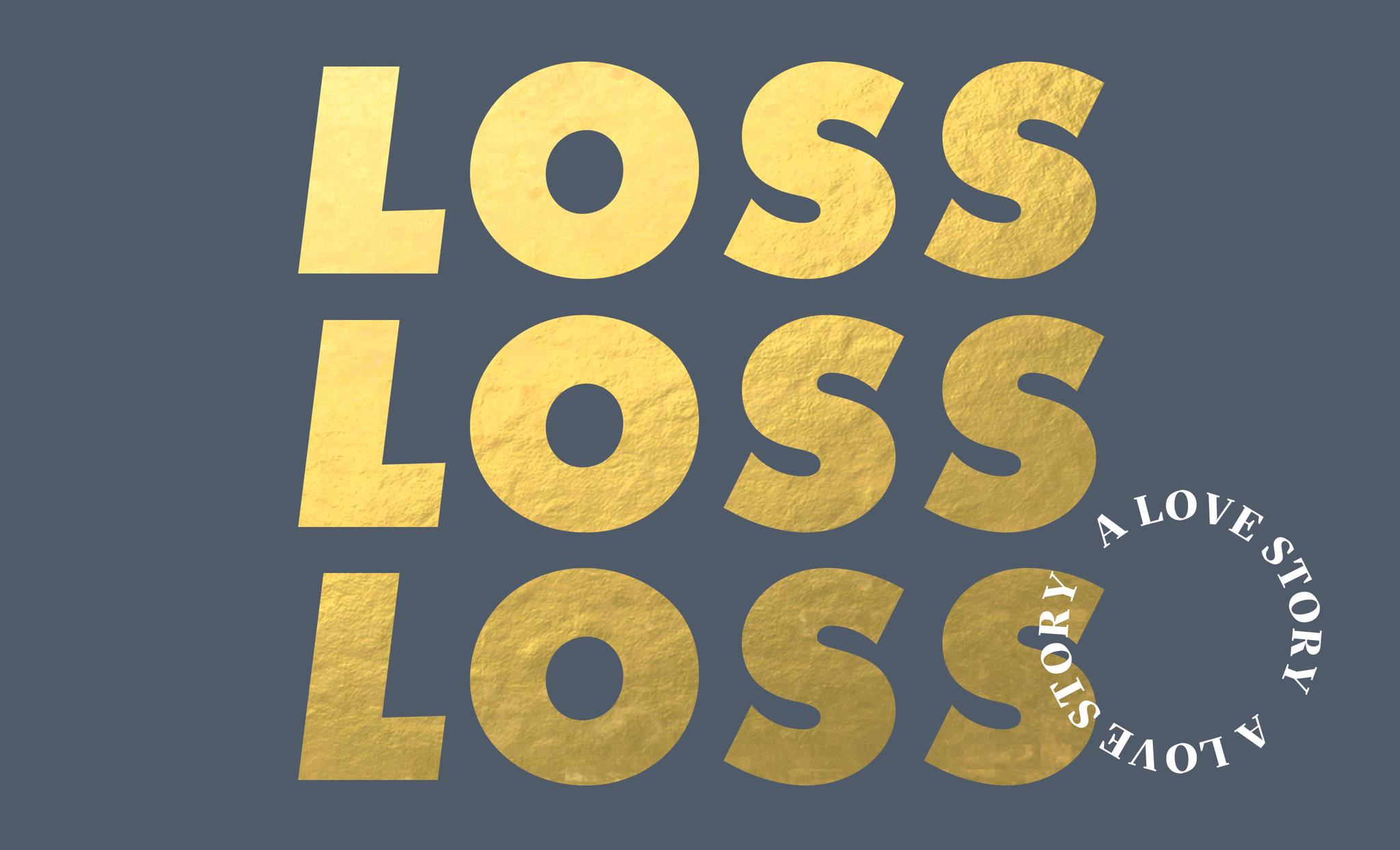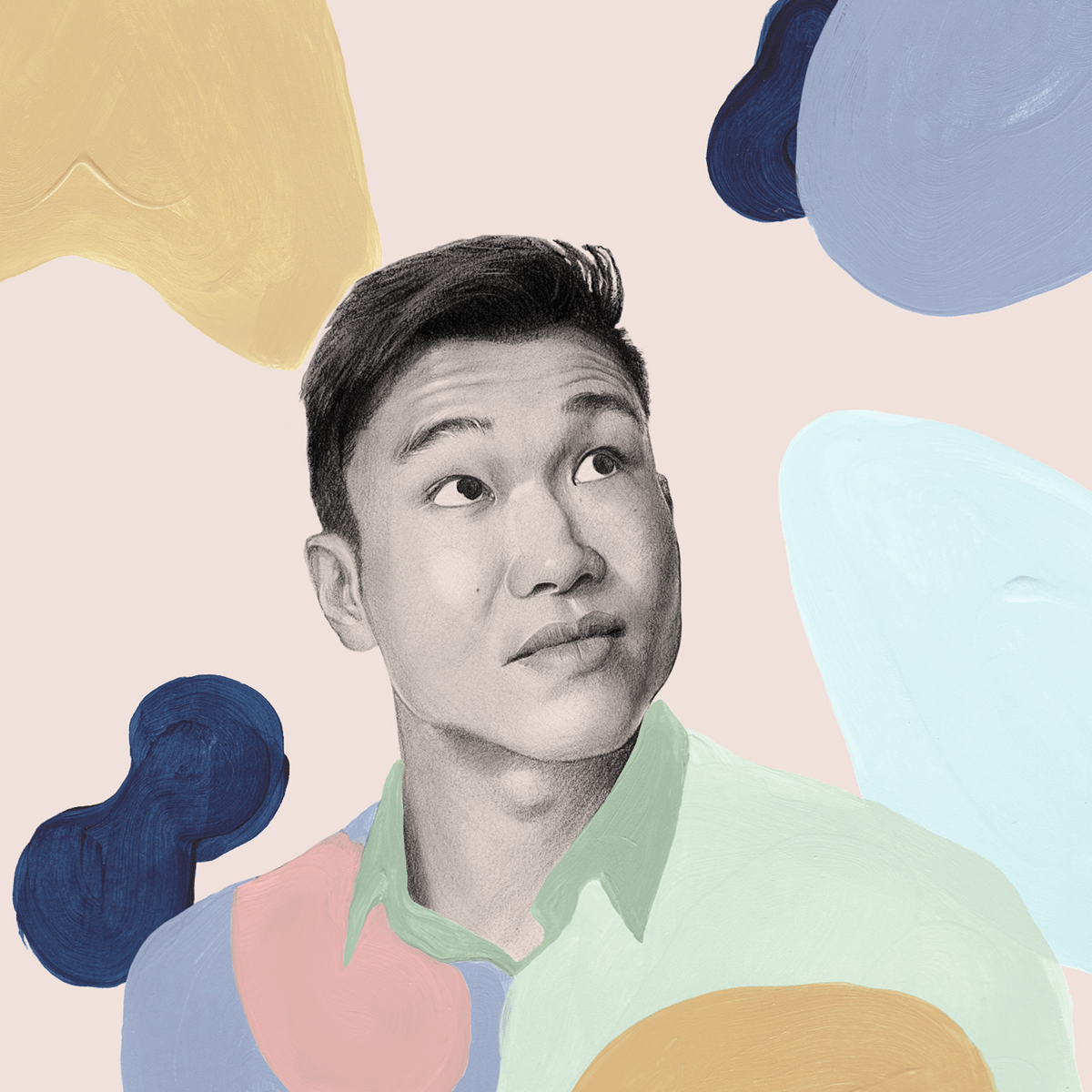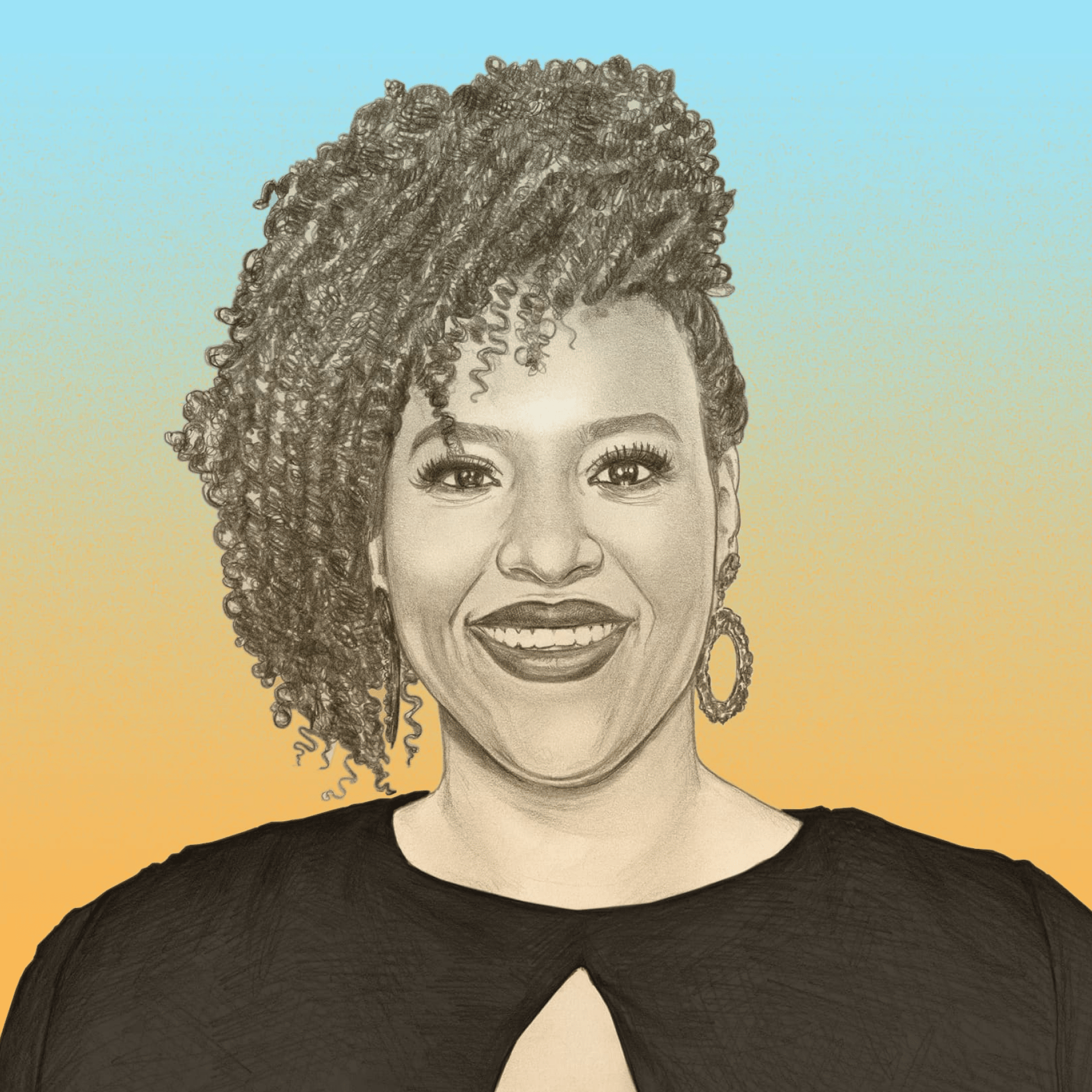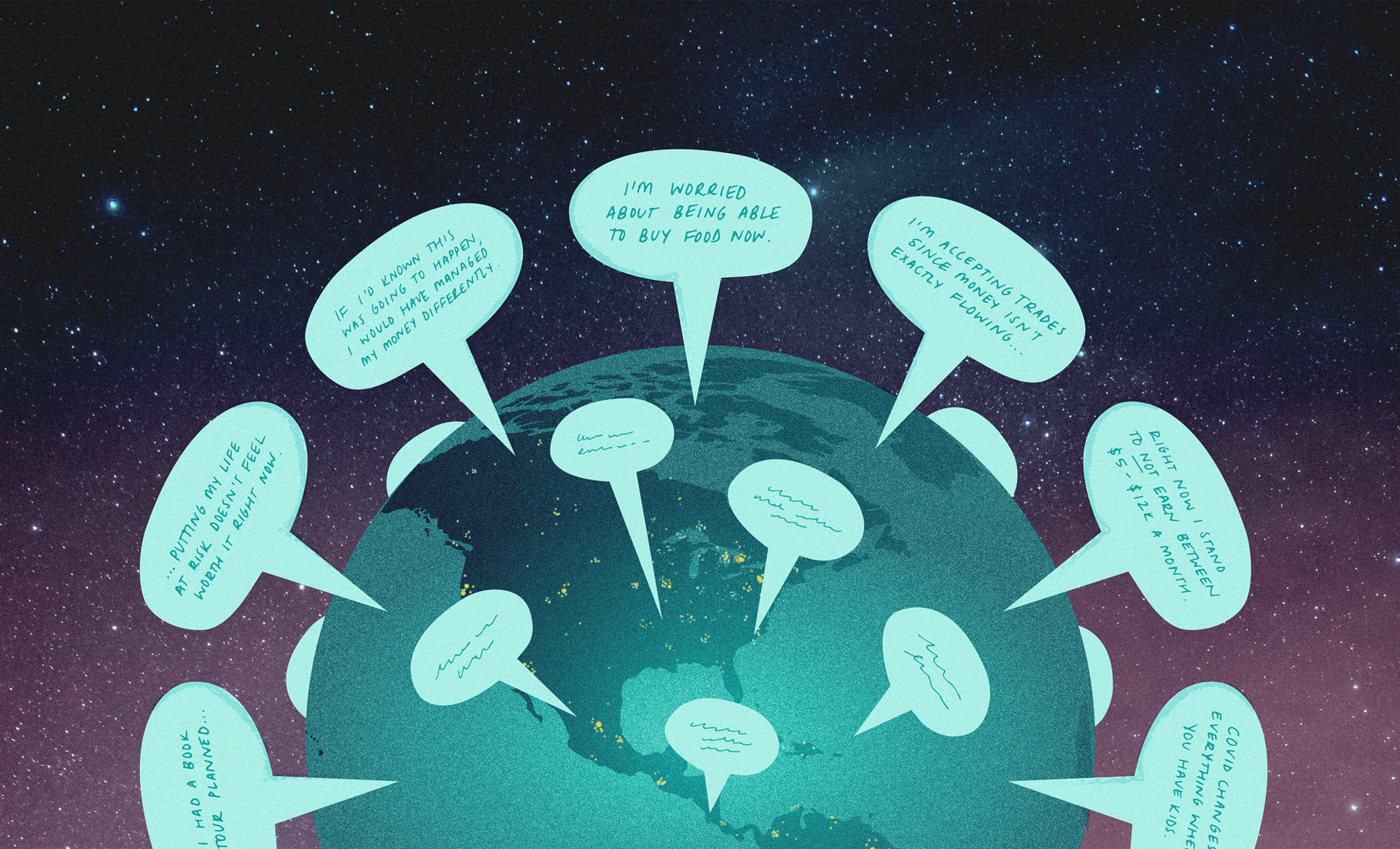
Money Diaries
Loss: A Love Story
In the second of our series on couples and money, a widow tells us about losing her husband of 47 years, and learning just how intertwined their lives were.
Wealthsimple makes powerful financial tools to help you grow and manage your money. Learn more
Wealthsimple is an investing service that uses technology to put your money to work like the world’s smartest investors. In “Money Diaries,” we feature interesting people telling their financial life stories in their own words.
My name is Mary Feinberg. I’m 76 years old. I live in New York. My husband Paul died on January 19, 2017. Paul had always been very healthy. I always told him, "You know, I'm going to be the first one to go.” My immune system is pretty horrible. If there was a cold going around, I’d get it. I have allergies, I have this, I have that. And I had breast cancer in 2004. I think in the 47 years we were married, Paul maybe had a cold twice. Paul ran marathons. He did yoga. He was very proud of the fact that he didn’t take any supplements. He kept a little book with him where he recorded what he did every day, and the morning he died, he did 278 push-ups. I’m serious!
How old was Paul when he died? He was born in 1942, so was he 74 or 73? I don't know. I'm very bad with math. For 26 years, I was a public school English teacher in East Harlem. I retired in 2001. Paul was a psychoanalyst in a private practice. He worked until the day he died.
He had what was thought to be a minor stroke at the beginning of June 2016. They did an MRI or something, and said they thought he had blood on his brain. So they took him to the hospital. But he was only in the hospital for a short time. He took some meds, but he got off of those quickly. He took about a week off, and then he went back to work with his patients. But over that time, from that June until he actually died, he started having trouble with words; he would start talking to you and then he would get his words mixed up, or he would just stop in the middle of a story and be sort of lost and not know what he was doing. He would also think that he’d told me something, and then I would say, "No, you didn't, Paul …" And then he would get really angry.
He was a terrible patient. I learned to say, "Oh, gee, I guess you told me that and I forgot," because there was no point in having him be angry. About a week before he died, he was complaining about pain in his arms. I said, "Well, maybe you're just exercising too much." It's really weird because the day before he died, I saw an article in AARP's magazine that said pain in your upper arms can be an indication that you're going to have a stroke, so I was trying to figure how I could tell him that, but the next day he died.
In our marriage, Paul earned the money. He did all the investing.

Sign up for our weekly non-boring newsletter about money, markets, and more.
By providing your email, you are consenting to receive communications from Wealthsimple Media Inc. Visit our Privacy Policy for more info, or contact us at privacy@wealthsimple.com or 80 Spadina Ave., Toronto, ON.
I went out that morning to meet a lady friend of mine for brunch and after I stopped and had my hair done. Jake, our grandson, was living with us while he took post-graduate courses at Columbia. He was in the front of the house studying at the dining room table, and Paul was in the back of the house. Jake thought he had left for work. When I came home I noticed that the bedroom door was partially closed, and I said that's unusual, because when we leave the house, we just open the door. I went in and there he was, lying on the bed, white as a sheet, and holding his hands up close to his shoulders, dead. We called 911, they came and they did all the work on him, which was stupid, because he was gone. And it was interesting because he was lying on the bed, he was dressed in his old clothes, still getting ready to go to work. But the bed had been made and there wasn't a wrinkle or anything on it. So it wasn't violent, and he wasn’t tortured. It was very quiet.
He was really good with his clients; when we had his funeral the whole room was filled with people from the psychoanalytic world, plus patients and friends from our synagogue. It was totally overcrowded — about 500 people showed up.
Paul was a big investor in the stock market. He figured that he’d rather take the money that he would have been paying for life insurance to use investing in the stock market.
Paul and I met at a friend's house. I had been married before, had my older daughter Alix, was separated, and in the process of getting a divorce. I remember when he came over I was sewing, putting hems on something for Alix. He came in and I thought he was so cute. He looked like Al Pacino in Serpico, with the beard and the curly hair. I asked my friends for his phone number and they said, "You don't need it. He already asked for your number."
Paul made a lot of money, actually. He made over $100,000, and sometimes even $200,000 a year. I don't know exactly but he did very well. And when I was teaching I made a nice salary, about $54,000 a year, or maybe a little bit more. Paul was a big investor in the stock market. He figured that he’d rather take the money that he would have been paying for life insurance to use investing in the stock market. And I said, "Fine. Go ahead." Because my Sicilian grandmother and her sister invested in the stock market when they came to this country — my aunt made a fortune investing in Standard Oil of Ohio and other things. Josephine had enough money to leave like $80,000 to each of her children and grandchildren, which is a hell of a lot of money for a lady who could hardly read English.
Paul didn’t come from any money either. His father was a glazier and his mother really never worked. But Paul was really good at investing. In the morning, he would wake up, and I'd bring him his coffee, and he would sit down at his little laptop in the bedroom, and look at stocks, and then, during the day, when he had a break, he would look at the market and see what was going on, and everything like that.Sometimes he would panic when the stock market would go down. I said, "Paul, it always goes up. It goes down. It goes up, it goes down. But then it goes up again. Just chill out."
Paul was so mad that he didn’t buy Apple when it first came out. He got some later. And he had some stock in Amazon. And some Union Pacific, the train one. And he had some ETFs, and I think he did have some mutual funds. He also had some companies in Canada, which are good. They have good solid stock and they pay good dividends. As he got older, he invested in stocks that paid dividends, because he didn't have a pension, like me; I get $2,148 a month from my teaching pension. He had social security, but he would take the dividends and he would reinvest them through an IRA.
Recommended for you

How I was Conned by the “Fake German Heiress”
Money Diaries

Cult Animator Carson Mell Decided Making Stuff Was More Important than College
Money Diaries

Joel Kim Booster Was in Massive Student Debt Until Two Years Ago
Money Diaries

Natasha Rothwell's Character in “The White Lotus” Finds an Angel Investor. Her Real Life Didn't Quite Work That Way.
Money Diaries
I didn't invest anything, but I'm a big NPR-aholic, and I would hear things, and sometimes I’d say, "Paul, guess what? There's this new battery coming out. You ever seen this? Look into it," that kind of thing. Sometimes he would invest in it, sometimes not.
Our apartment is rent-stabilized. I think we paid $500 a month for it in 1974, and now it is $2208.48, which is way under what they could charge for it. It’s very nice. It’s a seven-room apartment with lots of tiny closets that were filled up with Paul’s fishing equipment. He loved to fish. Two movies were made in our apartment. Our neighbours had an agent for their apartment and they were going to use our neighbour’s apartment as Michael Douglas’ apartment in Fatal Attraction, and they were going to use ours as a holding place for actors and whatnot, but the director, Adrian Lyne saw ours and liked it better. The neighbours weren’t happy, but they’ve forgiven us. Woody Allen used theirs for Hannah and Her Sisters. And our apartment played Kim Basinger’s apartment in 9 1/2 Weeks. Most of the very sexy scenes with her parading around naked took place in Mickey Rourke’s apartment, but there was a scene of him feeding her strawberries from the opened refrigerator. That was our kitchen. And I remember watching it and you could see the tile floor, which is original, and I said, "Oh, God, it looks so dirty. It's awful!" I don’t remember how much we made, but it was a hell of a lot of money. The movie people told us originally that they were only going to be there for two weeks. Wrong! Both movies were here for about two and a half months. I know it's really hard for people to feel sorry for us, but about half-way through, you get so bloody tired of going to restaurants for dinner.
In our marriage, Paul earned the money. He did all the investing, and he would do all the buying on Amazon Prime. But I did everything else — the laundry, the cleaning, and I’d write the checks for the bills. We didn’t live extravagantly. Paul loved clothes. He had more shoes than a shoe store. He had a million ties. He would buy his things at Orvis, Lands' End, L.L.Bean, and that kind of thing.
Paul had all his investments through a big investment firm, and as we got older, he said, "What are you going to do if I die first?" I said, "I will take all of our stuff right to their offices, and I will sit down with them, and have them help me." Which is what I did! But we didn’t know any of Paul’s passwords. So Shaina and her husband Chris, and Alix, all spent hours trying to figure out the passwords. He’d written them all on little index cards that were in a drawer, but then I guess he’d change a password but he wouldn’t change the index card. So they finally found them on his iPhone. I could never have done it, because I am not a computer genius.
When Paul died, I was so engrossed in doing so many things, because first of all, we had to close his office. So we had to get rid of the furniture, we had to get movers, and I was so busy having to do all of those things, and to pay bills, I didn't have time to really mourn until things settled down. And then I realized, oh, he's not coming back, right? No. So in some ways being busy was good, and some ways it was bad. You know what I'm saying?
When we got married, Paul wanted to adopt Alix, but her father was still alive at that point, so he didn't. He died quite young. He was a musician, a very fine pianist, but he was an alcoholic, and quite literally drank himself to death in his late fifties. It was terrible. He didn’t leave much of anything. When Paul was considering his estate, he had discussed dividing it so Shaina would get two-thirds and Alix would get one-third. But when he died, I made a decision. I told Shaina, "Look, Shaina, let's make this thing 50/50.” The conversation wasn’t difficult for me. I mean, I think Shaina may have been a little bit puzzled by it, but I really don't think she has any bad feelings about it at all.
When I sat down with the financial planners in New York, we went over a lot of the stocks. They were saying, "You know, some of these are a little too volatile. We're concerned. We don't want you to have too much volatility, so how about we' sell a little bit of this, and we have a little bit of that." And I said, "OK, fine." And so far, knock wood, it's been pretty good. They charge 1%. They’re so nice. And Chris set it up so that when they get a dividend, it goes right into my checking account. Together with the IRA and the investments, it's over a million dollars I believe.
I want to leave my kids and my grandchildren money.
One thing that we did that was really good. After my father died, in 1992, I told Paul we should get a healthcare policy so in case we have to go into a facility, we don't have to give away all of our money. So we did that when we were both relatively healthy. We got a really nice plan with about two years coverage in a home, which is usually how long people stay in nursing homes on average. I had a survivor benefit thing, so after Paul died, they contacted me and said "Your policy is in effect, but you don't owe us any more money." Which was pretty terrific; I don’t have to worry about all of that money being spent on my care.
As far as the kids go, Alix is 54 and she and her husband John are both psychologists and they’re pretty established in their practices. Shaina’s 40 years old, and she’s a comedian, actor, scriptwriter, and director, and Chris is a comedian, clown, and film editor — I hope I got that right! They need a new apartment. They live with my grandson in a tiny, tiny apartment in Brooklyn. They’ve made their apartment really sweet but they need a bigger apartment. They’re waiting until they get enough money to get a nicer apartment, which is good. I can be there to help. Things were slow in August for Shaina and Chris and they needed daycare, so, I said, "Sure, it's no problem. I'll write that check."
I don't want to spend it all! I want to leave my kids and my grandchildren money. I don’t spend a lot of money, but I'm also not walking around looking like a bag lady or anything like that. And I hope not to die right away, but when I do, it'll give them a solid foundation.
As told to Andrew Goldman exclusively for Wealthsimple; transcript edited and condensed for clarity. Illustration by Dafi Tamir.
Wealthsimple's education team is made up of writers and financial experts dedicated to making the world of finance easy to understand and not-at-all boring to read.






